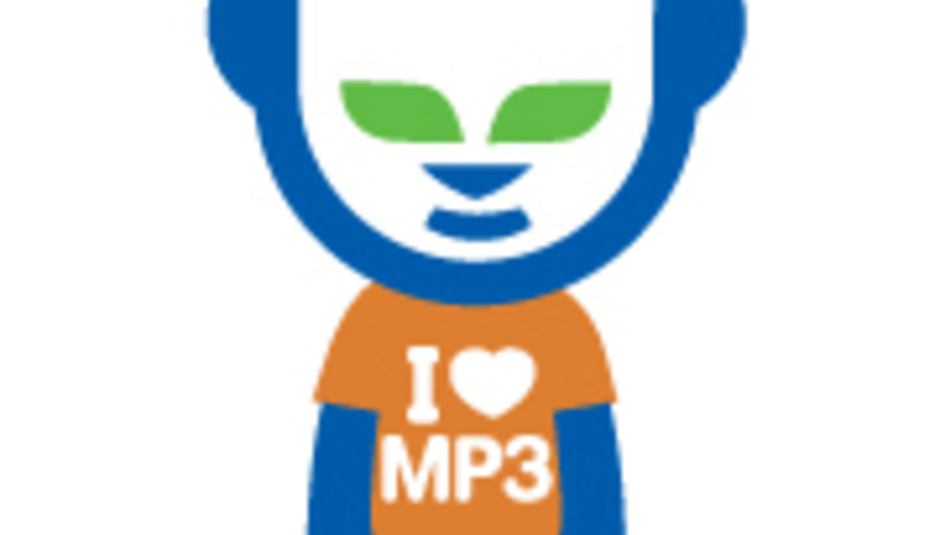This morning, DiS has woken up bleary-eyed to the news that music industry body, the IFPI, has released a report which claims that more than 40 billion songs were illegally downloaded in 2008.
This huge figure equates to 95% of all music downloads and is the same percentage of illegal downloads which were made in 2007, despite government action and the growth of legal sales and compelling alternatives to P2P.
We knew things were bad but this is astounding. It means that due to file-sharing via P2P, blogs, IM-ing, YouSendit/Rapidshare-ing zip files, CDR's, hard-drive swapping, etc. the record industry is only making 5% of the money it could potentially be making. This five percent of legitimate/legal sales equates to $3.7 billion (about £2.4 billion, according to Google's currency converter), which is all well and good but it's a pittance when you consider what the other 95% is worth, we figure about £48 billion!!!
This is especially worrying when you also factor in how much the digital world has eaten away at sales of CD and vinyl over the past decade. Digital has had as much of an impact on legitimate music sales, with people who used to buy a few albums a year now just buying a selection of single tracks they like instead of whole albums, and people streaming albums they once would have bought to have an opinion of, or bought to have in better quality than a tape-copy. The music business like to call this 'digital cannibalism' as an excuse to hide the fact that the major labels should have all bought an equal share in Napster all that time ago and manipulated it into the gigantic listening booth that the once-valued-at-$15-billion MySpace became several years later.
These kindsa gargantuan numbers all sound as if they only affect pop culture but, please, ignore your gut instinct. Having put the Drowned in Sound label on hiatus late last year (although we do still plan to release Martha Wainwright's next record but have effectively been forced to make our staff redundant, drop everyone else and give them back their copyrights) and speaking to various labels, both major and fiercely independent (especially those affected by the demise of distributor Pinnacle) these findings are clearly being felt by everyone who invests in music, be it for philanthropic or greed-driven corporate reasons. Something has to change for the good of business and more importantly the future of music.
There has been a lot of noise in the past year about the success of legal stores and we don't wanna piss on their candle but to put some of this into context, just 1.4 billion legal single-tracks were downloaded in 2008. The biggest selling track of the year was L'il Wayne's 'Lollipop' which makes up for 9.1 million of those sales. Coldplay were the biggest selling UK act last year with, with just 6.8 million album sales of Viva La Vida worldwide, I say 'just' but it was one of the biggest selling albums of the year and big albums used to sell upwards of 20million copies! I don't want to harp on about The Death Of The CD as, with or without record stores, it'll surely live on as a boutique item for years to come (just like vinyl has) but it's worth noting that in the US (which has an estimated population of 303,824,640) album sales fell 14% to 428.4 million units in 2008, following a drop of 15% in 2007. CD sales officially hit an all-time low in 2008.
These figures from the International Federation of the Phonographic Industries (which ironically also is the acronym for Int Fed of Pirates Interests) are from their annual IFPI Digital Music Report, which collates separate studies from 16 countries (- studies which have now been taking place for three years). The study singled out France and Spain as being affected particularly badly by online piracy, which is intriguing following the French governments introduction of a heavy-but-fair 'three strikes' and you're banned from the internet policy.
So what's the solution?
Some argue that ISPs should continue sending angry letters to their users, warning them that they are aware of what you're looking at but mostly that they're peeved that you're using too much bandwidth, having hooked you up on superfast broadband connection (which obviously you only got to download your emails from your Nan that bit faster!...) The result has simply been people switching ISPs. Others are calling for a tax or levy on internet access, with Scott Cohen, from the forward-thinking digital music distributors The Orchard calling for the music industry to rethink and to "monetize the customer, not the content" i.e. charge for access, add services to help people explore, offer better quality, save people time and provide exclusives. Essentially this is what Nokia's Comes With Music is - a proto-version of a kind of tax system, where you pay for one thing and get access to a whole other world of content, without necessarily feeling as if you're paying for the music itself.
I can see the merits to both of these options but they seem a cheek spank on the ass or an unrealistic step too far into the future. There are two key things I believe the industry/government should be doing to ensure that the creators of music (and TV, film, games, etc...) get a slither of that 95% (£48 billion) which is impossible to police. I suggest:
Not just sending letters to offenders but, as in China (and surprising when I was there, in Cuba too!), access should be limited. Legislation should come from governments to outlaw ISPs allowing their customers access to P2P networks (essentially cutting off the dealers, rather than going after the users). This would stop illegal activity being an option and anyone on a child-lock or office network know how easy this is to set-up. This would mean also outlawing sites like Rapidshare and Yousendit from allowing the transfer and, p'raps more importantly, the profiteering from the exchange of MP3s and other high quality entertainment formats. This may not be a popular idea with people who crave a limitless freedom on the web but if you consider these people make their living, in much the same way as the DVD-guy in the pub, profiting, whilst the creator of the music has to pimp t-shirts, over-priced tickets or work-a-day jobs to make music, then I hope the average music-lover would take the side of their favourite musician. The result of this would be that those who want to profit from music develop legitimate alternatives to file-sharing, like Spotify or maybe even a £20 a month access to a site like Oink, which some users said they'd pay £50+ a month to use.
Make all file-sharing legal but charge for the volumes of data transferred. Essentially this would mean people who download large volumes pay more for their access, just like people who send more text messages or use more water do. This charge already exists for website owners who pay for a volume of bandwidth their site uses and also on mobile phones as data charges, usually per megabyte.
This would be a simple tax (and perhaps not even that expensive, considering how free you'd be to download as much as you want) which would involve a form of monitoring the file types being transferred. It could even be done by scrobbling software (not unlike Last.fm, Twones and iTunes Genius playlist) and would ensure monies go to those who deserve it. Essentially, instead of being called a pirate for accessing sites, you'd sign up and pay a license to be able to access what the hell you want.
This tax could also be profitable for internet service providers and would encourage creative development of platforms to share music. Additional taxes could be applied, like VAT or as with CD mechanical royalties, to anything containing a hard disc, so, say £1 of every iPod sold (which reached 173 million sales in September) or 50p for every Terrabyte hard drive sold (mostly to back up music and movies, right?). This is not unlike what Universal reportedly gets for every Zune sold or the crazy money people must be making from their patents.
Anyone in search of more key statistics from the IFPI report should visit Music Ally. Or follow this link for the full IFPI Digital Music Report.
DiS is planning a week of content analysing the impact of the digital age and speaking to some of the people seeking solutions.
DiScuss: What do you think of DiS' solutions? What do you suggest? How much of that 95% of illegal download do you think was people downloading songs they'll never even find time to listen to?






















